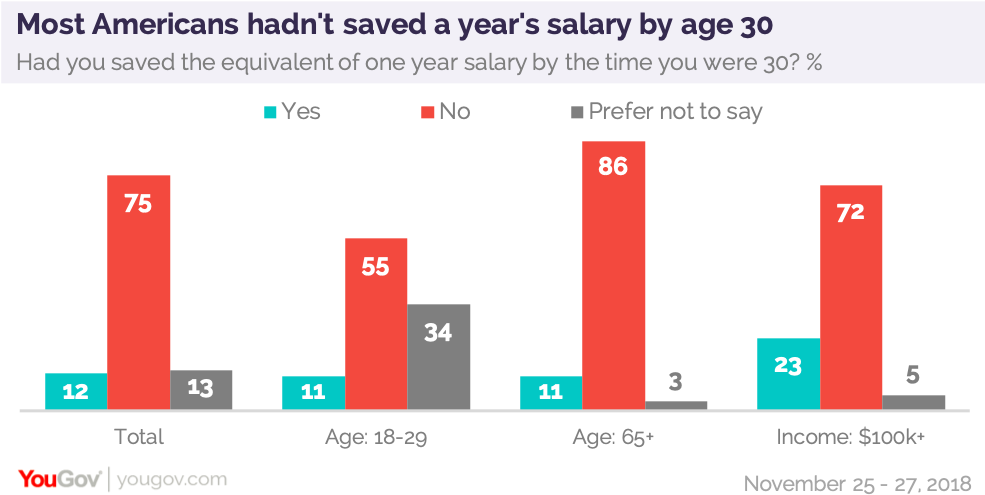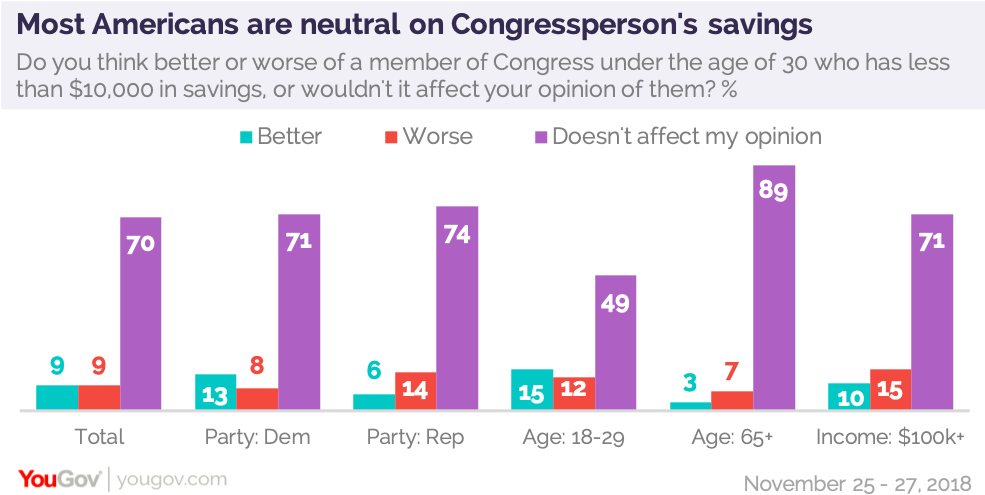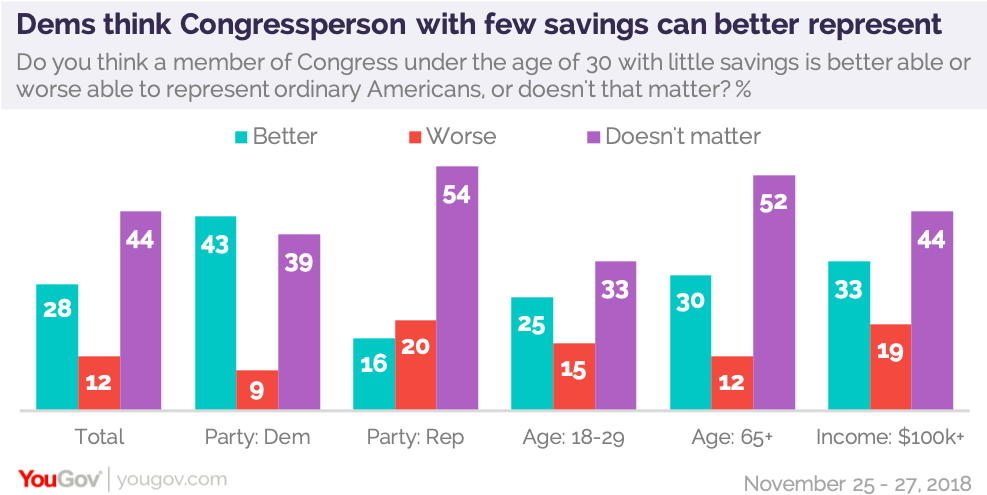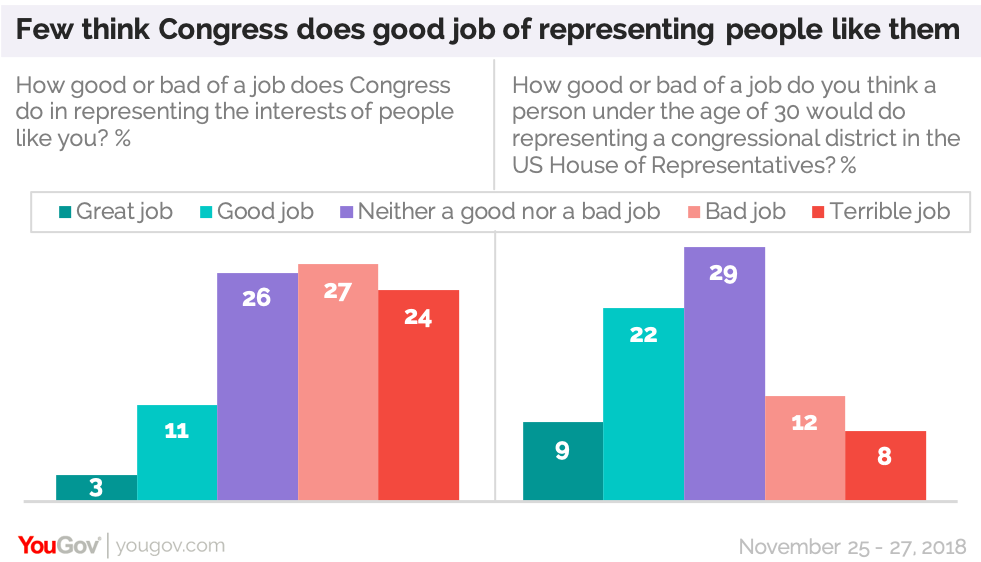Most Americans didn't have a year's salary saved by 30
Alexandria Ocasio-Cortez, the newly-elected Democratic Representative from the Bronx, has made it clear that she is working class, with little money in the bank. In fact, she told The New York Times that she was down to less than $7,000 in savings, and could not afford to rent an apartment in Washington, DC.
By the time a person is 30, financial planners say you should have saved one year’s salary (Ocasio-believe Cortez in 29). But she is not alone in not having so little in savings. Just 12% in the latest Economist/YouGov Poll say they had (or will have) that much in savings at age 30.

Young and old are equally likely to lack savings. Even among those with annual family incomes over $100,000, fewer than one in four say they had saved one year’s salary by the age of 30. Asked about America overall, 51% believe almost no Americans manage to save that amount in that time period. Only 4% think most Americans have managed that.
Americans see poor representation of both working and middle class Americans in Congress (less than 15% think those groups have good representation of their interests), a sizable difference from the six in ten who think the wealthy are represented well. Many are willing to have someone different try. While it might not be a “good thing” for a Congressperson to have such limited savings (just 13% say that), few would think worse of a Representative in that circumstance. Party, age and income groups are little different from one another.

More than one in four say this situation would make a person better able to represent ordinary Americans. Young and old agree, as do 26% of those with yearly family incomes below $50,000 and 33% of those with incomes above $100,000. Democrats are enthusiastic about such representation (43% think someone lacking savings would be better able to represent ordinary people, and just 9% say they would be worse). On this question Republicans are divided 16% better to 20% worse, but a majority of them think that wouldn’t make a difference.

As for whether or not someone under 30 would do a good job representing a Congressional District, just one in five think a person under 30 would do a bad job. A third expect a good job. Many say they have no expectations either way. 37% of those under 30 expect a good job, 11% a bad one. It is likely that many poll respondents knew that Ocasio-Cortez had been elected and that she would be the youngest woman ever to serve in Congress, so while half of Democrats say a person under 30 would do a good job, just 20% of Republicans agree.
Financial insecurity doesn’t just affect the young. Only 18% say they are on track to have the recommended ten years of salary saved by the time they are 67. Only 20% of those already 65 or older say they have it. But 44% of those with family incomes of $100,000 believe they will save (or have saved) this amount. Who is most likely to have saved enough, according to the public? 64% say most members of Congress have managed this feat.
Many don’t think there is good representation in general in Congress. More than half of Americans believe their interest are badly – or even terribly – represented. 40% of Republicans (whose party controls both houses of Congress until January, and who are the most positive of groups) agree.

See full toplines and tables results
Image: Getty







